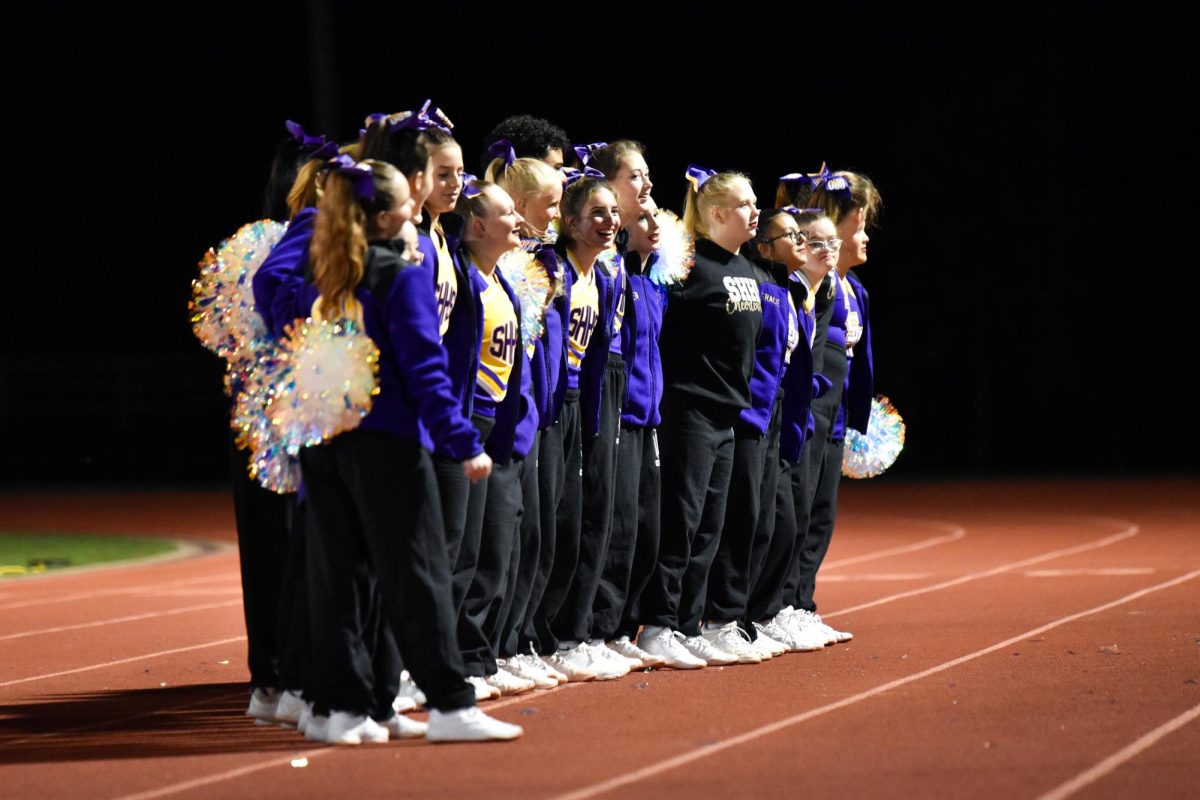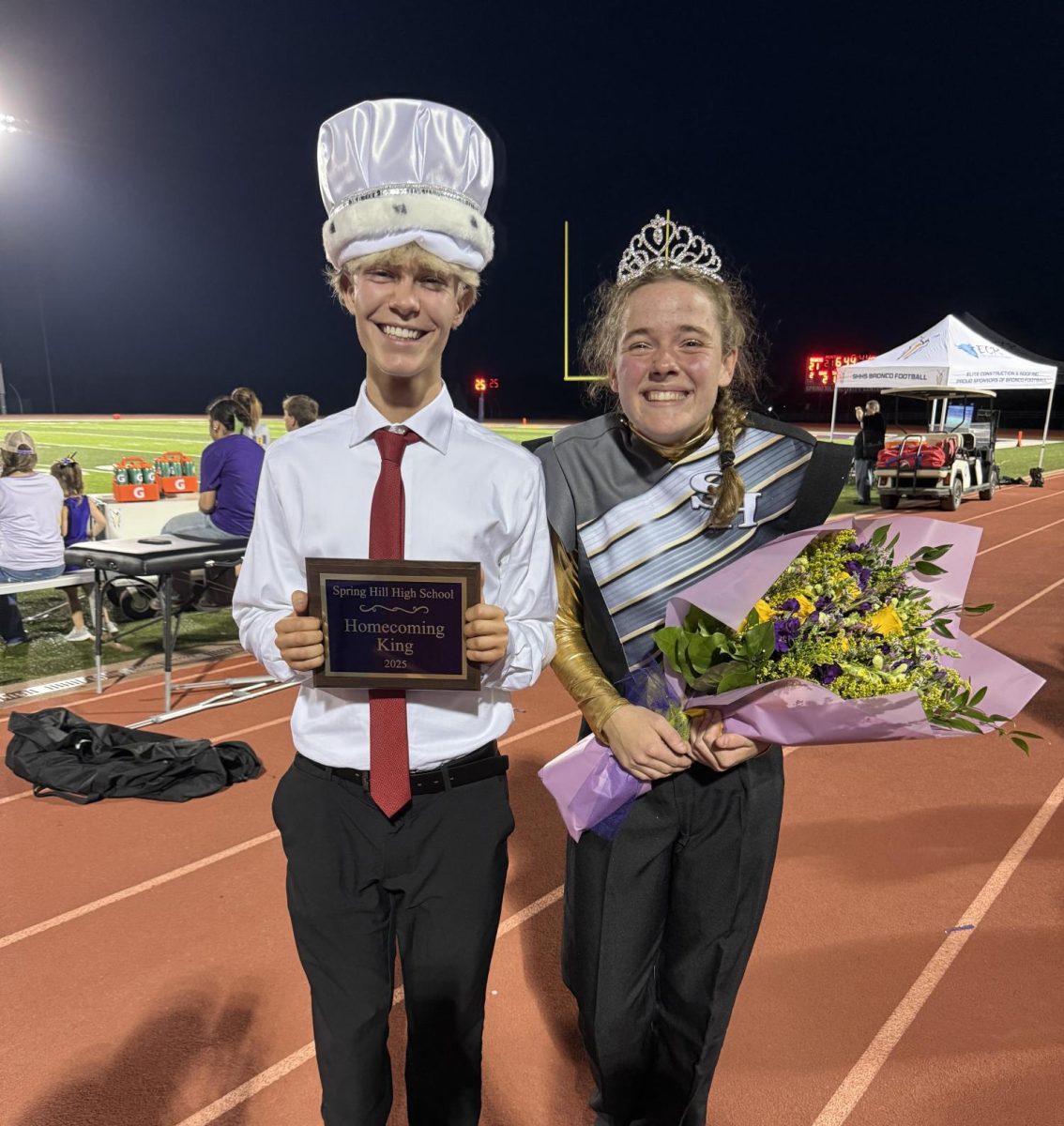“My first impression of her was that she’s really enthusiastic and quite loud, but it was a nice change of pace because she brought in a lot of energy to the class, and it’s easy for a teacher to stop there with all that flair, but she actually knew what she was doing; she taught well,” Kathlyn Tran, former student, 12, said.
“Kind of a crazy, outgoing person. She seemed really smart. I went in one time [when I was still in honors chemistry] to get help on something that I didn’t understand very well, and she made me understand the content and made me feel confident,” Miles Pankey, former student, 12, said.
“She was the crazy teacher because she was coming in – not yelling, but she’s loud. When we had learned stuff [in honors chemistry] and we weren’t getting it, she’d come in and explain it and then it was like, ‘oh!’…and you’d get it right away,” Jack Janovick, former student, 12, said.
Gissel McDonald, the high school’s current (and only, in school history) AP chemistry teacher, is renowned by many students as one of the best teachers in the district. But, that’s not where their story starts.
McDonald’s first experience teaching AP chemistry was out of necessity at a high school in Oklahoma. Just before their second year, the chemistry teacher was laid off, and because McDonald has a minor in chemistry, they were thrusted into the job mere days before students would walk the halls.
“It was through that year that the lightbulb went off, it just clicked in my head, and for the first time, I understood chemistry to the point that I started to fall in love with it. It was from that point on that I was like ‘this is all I ever want to teach,’” McDonald said.
Their favorite concept to teach, the one they are the most passionate about, comes at the end of third quarter.
“Acids and bases!” McDonald exclaimed. “I love the feeling when I teach really hard content, and kids grasp it, and kids start to feel like ‘oh my gosh, look at what I just learned, look at what I’m able to do, look at how hard this is, and I’m able to nail it. Look at the fact that I can take an AP question and get it right.’ I love the confidence that builds in a kid. I love that it’s rigorous because I want kids to be able to believe that they can be successful,” McDonald said.
McDonald’s clear passion for chemistry is just one of the many reasons students speak of their class so highly.
“She learns every day from the students, from the other teachers, and she’ll learn new content and new demos. She wants to get better, and that directly correlates to how her students pass and how her students do because if she gets better, then we get better,” Pankey said.
McDonald’s philosophy on teaching encompasses more than steady improvement
They give credit to the high school’s robust honors chemistry program for preparing students with prior chemistry knowledge, the rigor of an advanced chemistry class, and the district for being supportive of her endeavors.
“Part of my success is a really tight-knit team of science teachers that we have here. We all support each other, and the district is really supportive. If I have an idea to buy a new lab or get new equipment or new resources, I’m able to do a lot of the cool stuff that I do because they’re super supportive,” McDonald said.
McDonald believes that because chemistry is often so abstract, breaking it down for students is important. They reflect with their students on the questions they believe they need to ask themselves in the process of solving a problem. They believe they know what their students will get tripped up on and what questions they will have.
“Having a good teacher…you can think more critically because you know that she can answer your questions. [When] you ask her questions that she doesn’t really know the answer to, she’ll be like, ‘I’m going to marinate on that one,’ and then she’ll come back to you and have this really good, fleshed-out answer.” Janovick said. “It’s impossible to not pay attention in her class because she’s so energetic with the way she teaches.”
McDonald taught AP chemistry every year it has been available at the high school, and every year over 90% of her students have passed the AP test in May —a figure that is well above both state and national averages. However, uniquely, McDonald treats the success of their class like a sports team, not an average grade or a passing rate.
“I used to think this was horrible — she randomizes lab groups which is really helpful. That seems like it would suck, but really, you’re in a class with people who are just as smart as you, or smarter, and I talked to people that I never would have talked to just because we were in the same lab group, and I think that’s really helpful,” Janovick said.
“How does a coach get a team to be productive? You have to get everyone to buy into the goal. I want everyone to believe that they can pass the AP test in May,” McDonald said.
The “productive struggle,” as McDonald says, is just as important to them as a test score is.
“I think quite often students just expect school to be easy, and when it gets hard they want to quit, but I’m trying to show kids that you can, and you will eventually when you get college, struggle through content…so what do you when you start to struggle, what do you do when you hit a barrier? I want kids to learn how to struggle through content, but I want them to do that in a safer environment, which is my classroom, versus a lecture hall of 400 people in college,” McDonald said.
Passing the AP test is the end goal for most students, but McDonald hopes that their students widen their horizons.
“Your identity does not come in your grade. You’re way more than what a GPA says. You’re way more than what an AP score says. You’re way more than what an ACT score says. Are all of those things important? Absolutely, but you can’t put your identity in that,” McDonald said.
McDonald’s passion for teaching showcases one of the many examples in the district of teachers who truly care about the success of their students.
“I love it,” McDonald said. “It’s the happiest part of my day.”


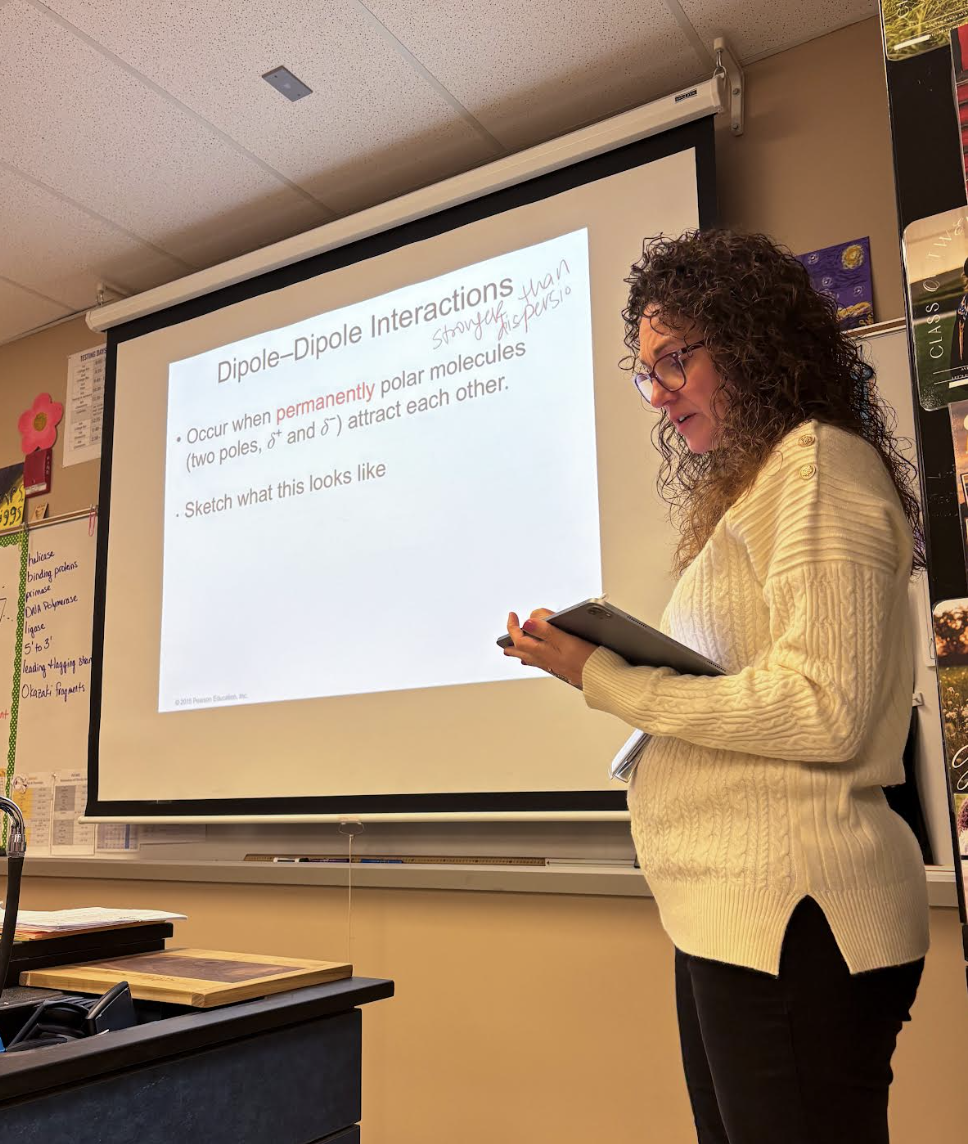

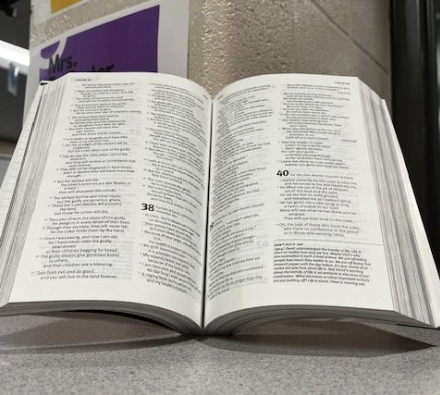
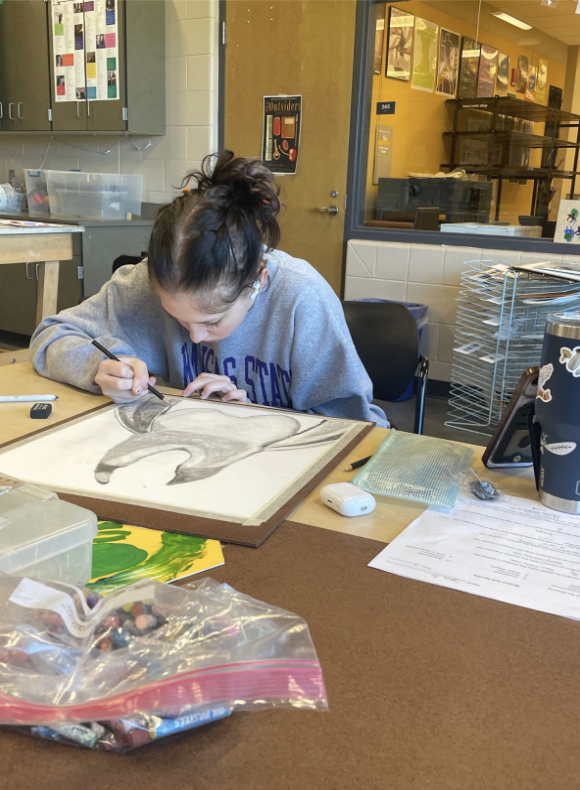
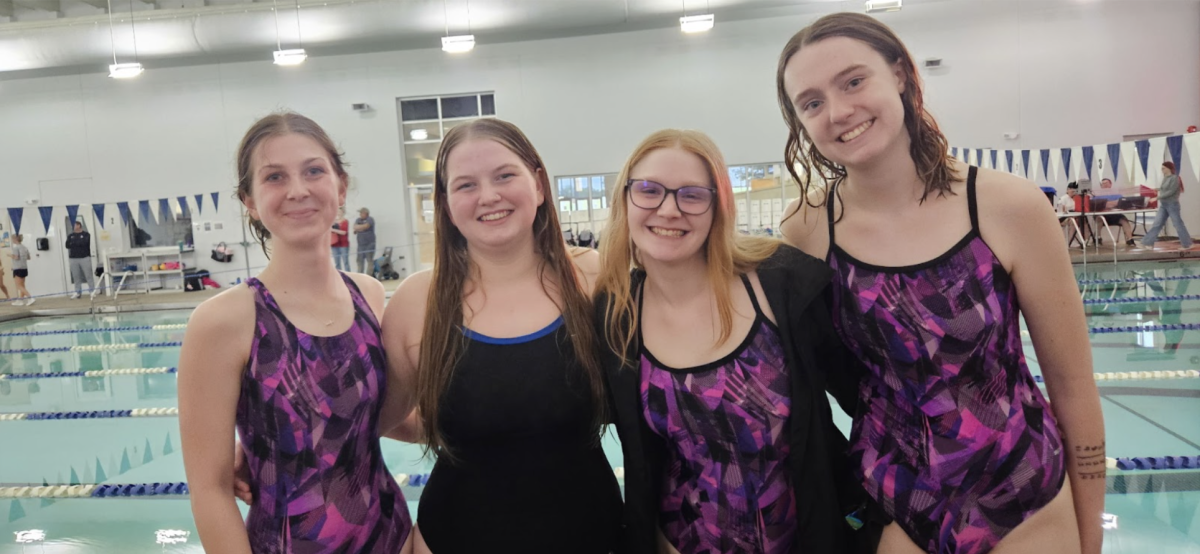



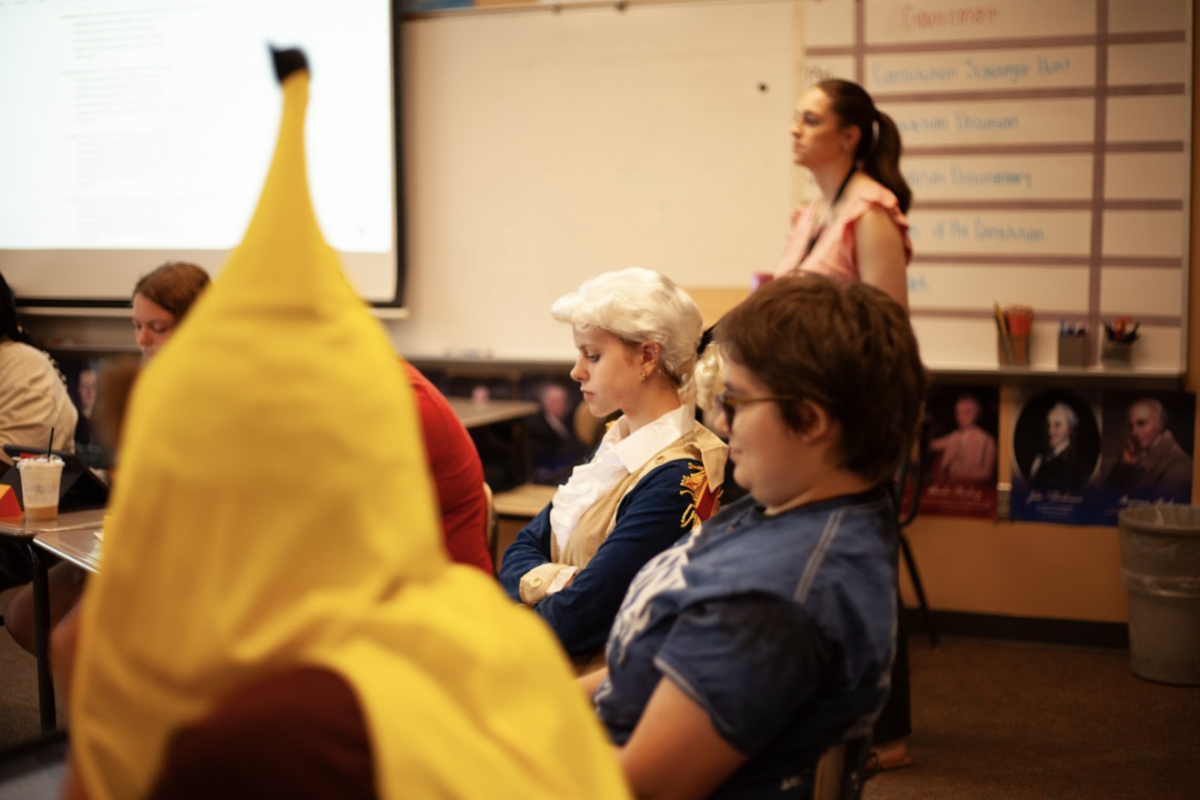

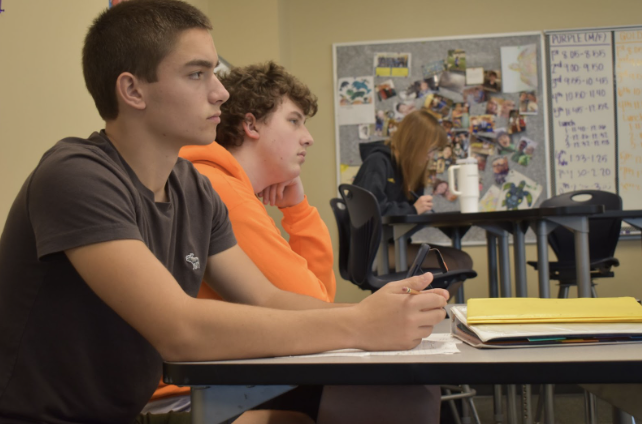

![Peering through their microscopes, [Brock] Laplante’s freshman Biology class has a hard time pretending they’re not interested. From sharp angles to swirling cells, there’s no predicting what could be seen.](https://stampedenews.net/wp-content/uploads/2025/10/Screenshot-2025-10-03-at-10.56.07-AM.png)
